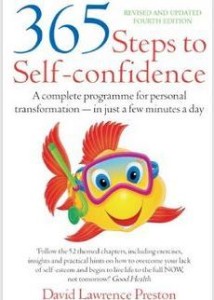The Second Principle of relationships is:
If you want a relationship to succeed, you must take responsibility for the relationship.
The fundamental truth about relationships is this: other people are primarily interested in themselves, not you. They are primarily governed by self-interest (as are you). So the more important you make a person feel, the more favourably they regard you. Similarly, the more they make you feel important, the more favourably you respond to them.
No-one likes to be treated as a nobody, patronised, ignored, talked down to and have their faults and shortcomings pointed out.
In every interaction, think about the other person’s needs. Listen and watch. Observe their non-verbals. Use your intuition. Then decide how far you’re willing to go to meet those needs. If you genuinely want a relationship with another person, meeting their needs is what keeps them interested in you.
What people want from relationships
People enter into relationships primarily because they want to feel good. They want to feel valued, appreciated and secure. They want:
- Communication: clear expression, honesty and openness; no hidden agendas.
- To be listened to and heard.
- Acknowledgement and recognition, approval and appreciation.
- Commitment, which enables people to resolve disagreements without the relationship falling apart.
- Common purpose and values: without these, a close relationship is unlikely to last very long.
- Loyalty, integrity and trust.
- Co-operation and teamwork.
- Practical and emotional support, being there when needed.
- Respect for each others’ individuality: accepting the other as they are.
- Acceptance of change: No relationship ever stands still: if it does not move forward, it stagnates.
- Sense of humour, fun and play: a must.
- The willingness to work at understanding each other: some relationships gel quickly, but most take time to develop.
What people don’t want from relationships
Few of us welcome:
- Constant and/or unfair criticism
- Dishonesty/deceit
- Secrecy/aloofness
- Untrustworthiness
- Antagonistic/confrontational behaviour
- Gossipping behind their back
- Bullying
- Manipulation
- Complaining
(You may be able to add a few more ‘don’t wants’ of your own.)
I’ve found that with patience and the right attitude, you can get on with most people if you really want to. Nurture others’ dignity and self-esteem, show acceptance and respect. Then they’ll do the same for you.
©David Lawrence Preston, 2.8.2016
Follow me on Facebook and Twitter @David_L_Preston
How to Books, 2010


